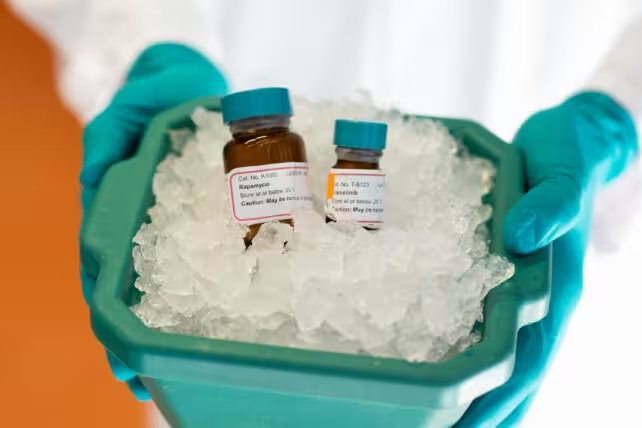4 Minutes
Scientific Context: The Quest to Delay Aging
The exploration of longevity and healthy aging has been a focal point in biomedical research for decades. As the global population ages, scientists have increasingly sought novel anti-aging interventions capable of not just prolonging life, but ensuring that extended years are accompanied by good health. A groundbreaking study led by researchers from the Max Planck Institute in Germany now sheds new light on this effort by testing a combination of two cancer drugs, rapamycin and trametinib, for their potential to slow the aging process in mammals.
Experiment Details: Testing Rapamycin and Trametinib in Mice
To assess the effectiveness of anti-aging interventions, the research team administered rapamycin and trametinib separately and in combination to hundreds of laboratory mice, beginning at six months of age—a stage roughly equivalent to young adulthood in humans. The drugs were provided via regular dosing, and the researchers monitored the animals throughout their natural lives, meticulously tracking survival rates, health status, and markers of age-related decline.
Drug Background: Rapamycin and Trametinib
Both rapamycin and trametinib are already approved for clinical use in humans, primarily as cancer therapies. Rapamycin, originally developed as an immunosuppressant to prevent organ transplant rejection, has demonstrated lifespan-extending effects in various animal models. Trametinib, on the other hand, is known to inhibit certain pathways involved in cellular aging and has been shown to extend the lifespan of fruit flies. However, its impact on larger animals had been less clear until now.

Remarkable Outcomes: Lifespan Extension and Health Improvements
The results of the experiment are striking. Mice treated with rapamycin alone experienced a median lifespan increase of 17 to 18 percent. Mice administered trametinib on its own saw improvements between 7 and 16 percent. Most notably, when the drugs were combined, median lifespans surged by approximately 26 to 35 percent—a far more substantial gain than either drug could achieve alone. Specifically, female mice displayed a 34.9 percent increase and males a 27.4 percent boost in median lifespan, with similar gains observed in maximum possible lifespan.
Beyond Longevity: Preserving Health During Extended Lifespan
Importantly, these additional years were not marred by the typical burdens of aging. The combination therapy delayed the onset of tumors in the liver and spleen, reduced chronic inflammation across several organs—including the brain, kidneys, and muscle—and helped maintain physical activity and heart function in advanced age. Treated mice also showed decreased body weight and a slower decline in cardiac performance compared to controls.
Dr. Linda Partridge, co-senior author and leading geneticist on the study, highlights the relevance for human health: "While we do not expect to see as dramatic an increase in human lifespan as in mice, our goal is to enable people to age more healthily, staying disease-free and active for longer."
Mechanisms and Safety: How the Drug Duo Works
Both drugs act on a critical cellular signaling pathway known as the Ras/Insulin/TOR network, which is closely tied to metabolism, cell growth, and aging processes. Although they influence the same cascade, rapamycin and trametinib affect distinct points along the pathway. Detailed gene expression analyses revealed that the combined therapy induces unique genetic shifts not seen with either drug alone, suggesting a synergistic effect rather than a mere additive increase in dosage.
Importantly, researchers found no additional side effects from the dual treatment aside from those already associated with each drug individually, underscoring the safety profile for future studies.
Implications and Future Prospects for Human Applications
Given that rapamycin and trametinib are approved for human use in the United States and European Union, clinical trials investigating their potential anti-aging effects in people could commence in the near future. Preliminary results from previous human studies already hint at benefits; notably, rapamycin was recently linked to increased fertility in perimenopausal women by up to five years.
As Dr. Partridge notes, “Further research in humans over the coming years will clarify exactly how these drugs may be leveraged for healthy aging, and help identify who stands to gain the most from such therapies.”
Conclusion
The combination of rapamycin and trametinib marks the most significant pharmacological extension of lifespan yet observed in mice, opening exciting new avenues in longevity science. While the leap from mice to humans requires cautious optimism, this research strengthens the case for targeting molecular aging pathways to improve not only lifespan, but the quality and vitality of life in later years.


Comments